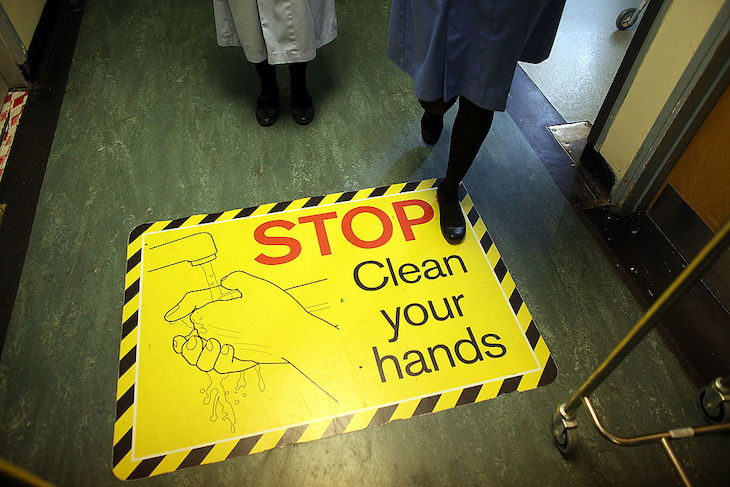The overwhelming smell of weed wafting down the street; heaps of decomposing litter floating in local canals and rivers; the noise of a dozen video calls and TikTok videos blasted through loudspeakers on the train. Many Britons are exhausted with the tide of anti-social behaviour that all too many of us have become accustomed to. The obvious remedy, it might seem, would be to crack down on this behaviour – for the authorities and the public to enforce Britain’s rules with renewed vigour. To do so, however, would only reinforce the problem. It is in fact the plethora of patronising dictats issued from the top down that is behind the collapse in Britain’s social order. The solution is to get rid of them.
Britain used to pride itself on being a liberty-loving nation: an assumption that ordinary people, most of the time, know how to behave without being micromanaged. That assumption is being hollowed out by an industry of caution. Health and safety notices and regulations are omnipresent; I am confronted by eleven just as I try to enter a public park in central London. If you try to refill a mug of hot chocolate at Wetherspoons now, you will be forbidden to do so on the grounds – dictated by the government – that this is bad for your health. Walking up the stairs at a train station, seemingly endless writing etched in concrete appears: do not run, hold the handrail, no luggage, do not use a mobile phone, keep left. And Heaven forbid you use the tube stairs at all if they have too many steps – unless it’s an ’emergency’.
Societal bonds have been replaced with authoritarian dictates
Perhaps the reason for this is just that the British public simply no longer know how to behave. Omnipresent bans and regulations have become necessary to rein in anti-social behaviour. Yet, most of this regulation has little to do with bad behaviour; it is rather motivated by protecting people from exercising their own free will. Some of this regulation doesn’t even achieve that but is merely an exercise in virtue signalling, such as when the government banned ‘ninja swords’ despite them having already been illegal to carry in public since 1988.
Most importantly, however, the sheer volume of regulation leads to a paradox: the more trivial rules we insist upon, the less weight any individual rule carries. Present citizens with a thousand injunctions – some insignificant, most plainly patronising – and the signal sent to the public is that rules are endless and arbitrary.
The consequence of this is that the rule of law becomes diluted and the genuinely important rules get lost in the crowd. There is no indication in the public realm that petty theft, vandalism or trespassing are any more damaging than running down the train platform, smoking in a park or going back for a hot chocolate refill. The law loses its authority, like a fire alarm that is tested so often that nobody reacts when an actual fire breaks out.
People notice when authority becomes both omnipresent and petty. You do not gain respect for the law from people by insisting that every benign action requires a sign. You lose it. The response is twofold: passive disengagement, as omnipresent rules are ignored; and active resentment, as patronising rules are despised. This invites flouting of all rules, including when they matter.
High-trust societies do not need to behave this way. In Poland – generally seen as a paragon of social cohesion – trivial misdemeanours are everywhere. Nobody bats an eye if you feed the pigeons or if you set up a barbecue in a public park; but if somebody were to violently threaten you in public, you could be sure that strangers would immediately rush to your help.
Despite this, many on the right think that the solution to anti-social behaviour is to police every act of wrongdoing. Sadly, the public are with them. Nowadays, Britain – once a liberty-loving nation – loves banning things. Two-thirds of Brits think that today’s young should not be able to choose to smoke a cigarette when they grow up; over half think slushies should be banned; and over a third even support a ban on trick-or-treating.
Consequently, regulation has continued to pile up. The last politician to seriously attempt to curb this assault of health and safety fascism was David Cameron, who, as prime minister, set up the Reducing Regulation Committee. Yet analysis from the Centre for Policy Studies found that regulation continued to proliferate despite such efforts: new rules added in the nine years since the committee’s creation cost the UK economy £35 billion – equivalent to a ten-percentage-point hike in corporation tax.
Still, the real cost to Britain has not been economic but social. Societal bonds have been replaced with authoritarian dictats; the way to behave in public is no longer determined by a sense of courtesy towards a fellow person but by the whims of the no-fun-allowed jobsworth. The latter can never replace the legitimacy of the former.
To restore social cohesion, we must not police the ever-growing number of increasingly arbitrary rules. Let us have fewer, better ones – more thought-through and better enforced where it counts. Restore the idea that rules matter, and you restore the legitimacy of the law itself.







Comments